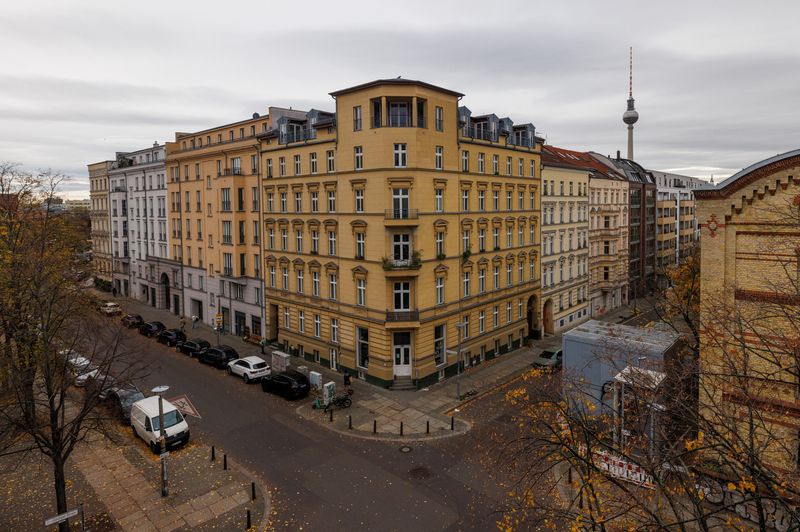BERLIN (Reuters) - Poorer households in Germany, particularly single parents and people living alone, are suffering most from rising rental costs, a study showed on Wednesday, amid a looming recession and the country's most severe property market crisis in a generation.
A report by the German Institute for Economic Research (DIW) showed that low-income groups allocate a larger share of their income to rent than wealthier households, with the gap steadily widening.
From 2010 to 2022, asking rents surged by 50% nationally and by up to 70% in large cities, while existing rents grew by 20%. The 20% of households with the lowest incomes spent over a third of their income on rent in 2021, compared to just a fifth for the wealthiest.
Single parents and individuals living alone are particularly vulnerable, spending on average 30% of their income on rent, compared to around 20% for families with children.
The percentage of overburdened households — those spending over 40% of their income on rent — has increased from 5% to 14% over the past 30 years, while social housing stock has declined.
The rise in rents adds to Germans' cost of living crisis which has not eased despite a drop in property demand after a rise in interest rates and building costs.
To address the social housing shortage, the German government in 2021 set a target of building 400,000 apartments annually, but only 294,400 apartments were built last year.

In Berlin, where rents rose by over 40% in 2023 compared to seven years earlier, the city government tried to impose a cap on rent in 2020 which was later overturned by Germany's top court as unconstitutional.
DIW study authors cautioned against broad rent control measures, saying they do not specifically aid low-income groups, instead calling for targeted support for low-income renters and an expansion of social housing.